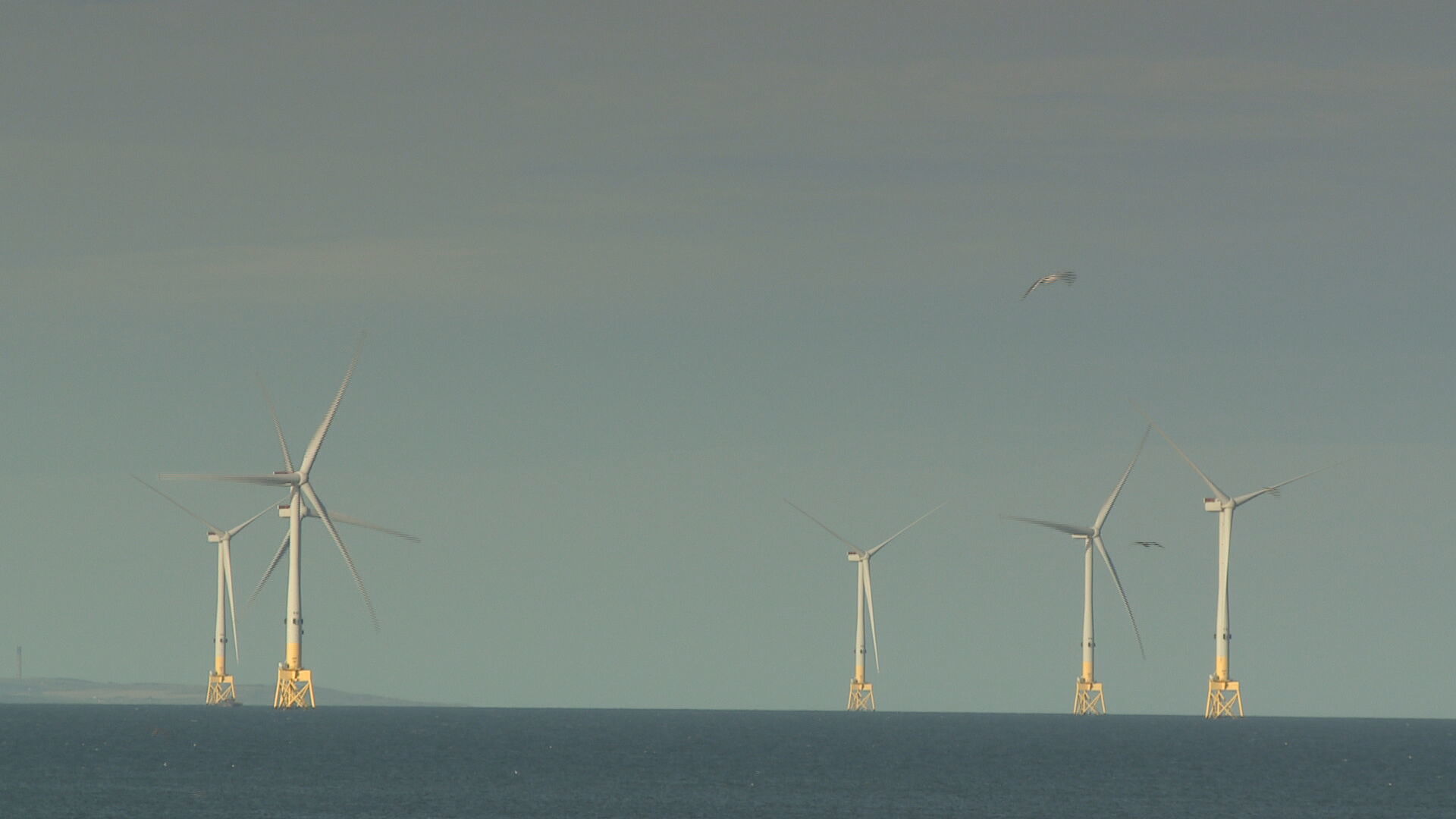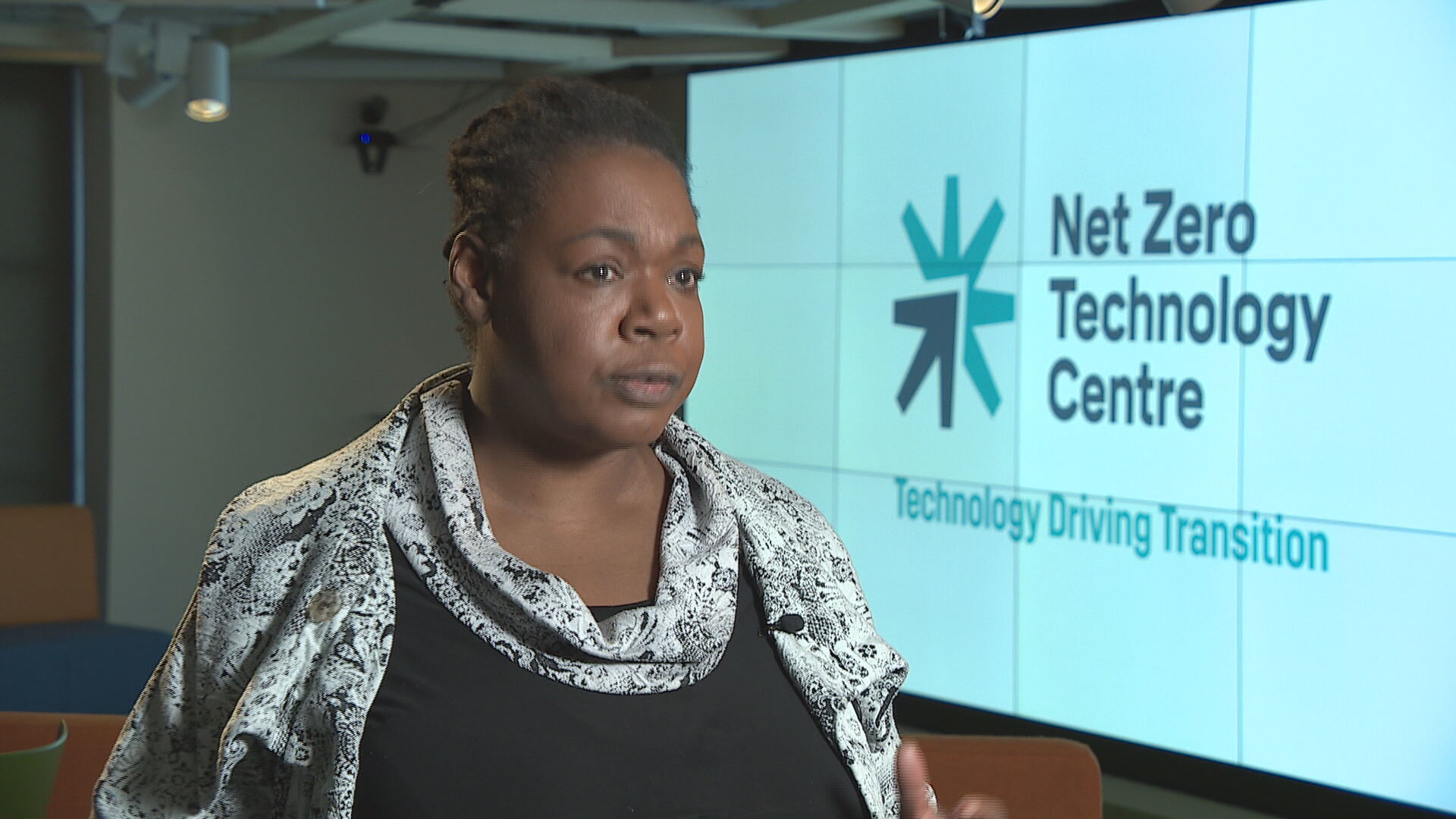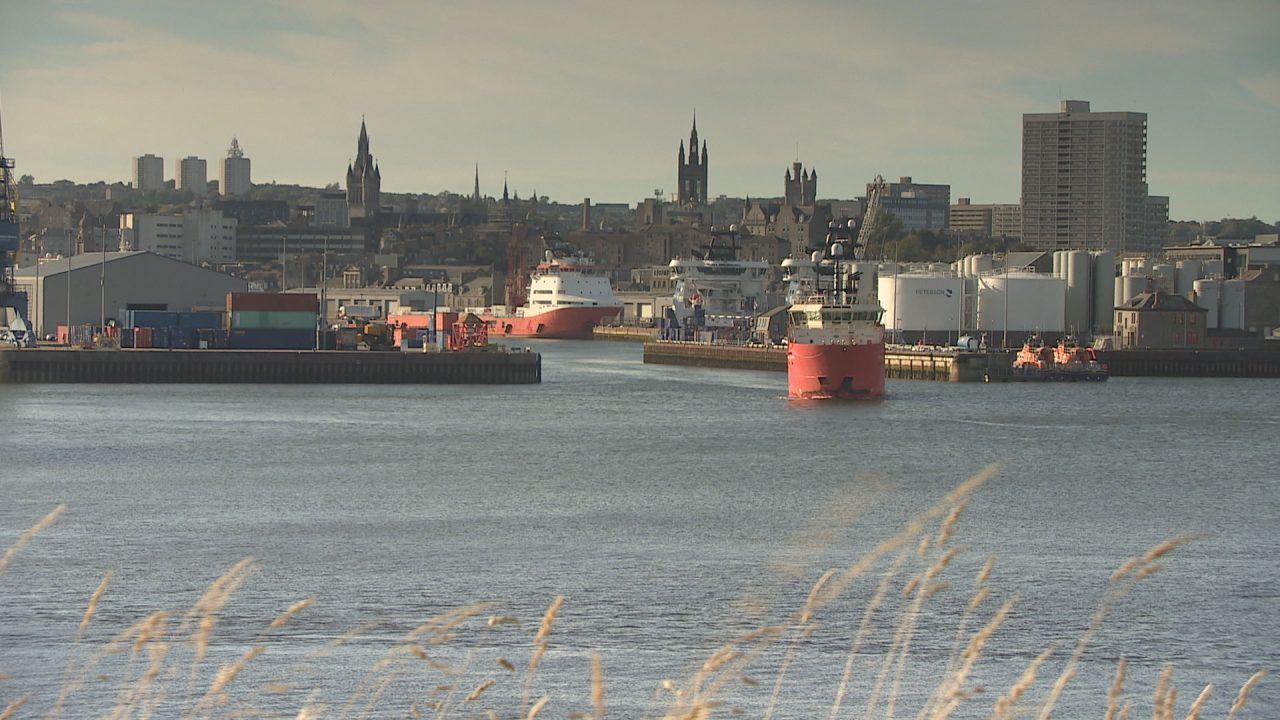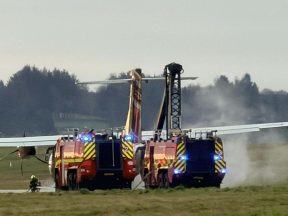Around six out of ten people in the north-east of Scotland believe the windfall tax will hurt the region’s economy.
A survey by ScotPulse on behalf of STV News shows 57% believe it will have a negative effect, while only 9% living in the area say it will be positive for local businesses.
It comes amid warnings there must be new jobs for those employed in the oil and gas sector as the country transitions to a future powered by renewables. Around one in five jobs in the north-east are directly or indirectly employed by energy firms.
Earlier this year, the Conservative government at Westminster announced that a windfall tax placed on oil and gas companies would be extended for another year.
The current 35% Energy Profits Levy, which will run until 2029, brings the total tax burden on producers to 75%, among the highest in the world.
But the new Labour government plans to increase windfall taxes on oil and gas profits from 75% to 78%, extend the tax until 2030 and abolish tax incentives for further investment.
Figures published by industry body Offshore Energies UK (OEUK) show the proposed increase would see investments in UK projects by oil and gas producers fall from an expected £14.1bn to just £2.3bn between 2025 and 2029.
 STV News
STV NewsWhat does the future hold?
The future of energy has become shrouded in controversy and debate.
In Aberdeen, oil was once the only topic in town.
The change in government at Westminster following this summer’s general election signalled a change in direction in terms of the future of the North Sea.
But the question for many is what exactly comes next and what it might all mean for jobs and investment.
Scotland is already leading the way in renewables such as offshore wind and tidal power.
In places like the north-east, however, it’s about how we move jobs from fossil fuels to those in green technology.
Across Scotland, some 60% of people support Scotland’s net zero ambitions. That drops to under 50% for those in the north-east.
 STV News
STV NewsMyrtle Dawes from the Net Zero Technology Centre said: “A lot of the jobs for the energy transition, people already know how to do them, I think where the gap is, are we creating the new vacancies and jobs for people to walk into, as opposed to do people have the skills.
“So I think it is that pace, and making sure that we’re keeping up with people moving out of traditional jobs into the newer jobs.”
The so-called just transition has been spoken about many times but it’s more than just a phrase for those representing workers.
An issue hanging over the oil and gas sector is the windfall tax.
OEUK has warned that proposed changes could wipe £13bn from the value of the sector.
But climate campaigners, who have called for a just transition, say the windfall tax is needed.
Tessa Khan, executive director and founder of the campaign group Uplift, said: “So far the signals that the UK Government have sent in terms of a transition away from oil and gas are promising.
“There’s a lot more detail to come and, in particular, we are interested in detail about how they will transition the North Sea oil and gas workforce, and the communities in the north-east of Scotland – who have ties to the industry – into those long-term, sustainable industries of the future.”
Investment is continuing in Aberdeen. The city’s new £420m south harbour is a case in point. It is built to cater for larger vessels that are needed as part of both decommissioning and renewables work.
However, with oil work up this year, a smooth transition is key.
Roddy James, the chief commercial officer at the Port of Aberdeen, said: “What we see is it has to be a just transition – it has to move from the energy we produce at the moment, the fossil fuels, into the clean renewables going forward.
“If there is a gap of three or four years, the whole supply chain and everybody associated with that, requires time to adjust and transition but they also need revenue for the here and now.
“If it is a cliff-edge, a lot of companies will struggle with bridging that gap between when the new industry starts and when the old one finishes.”
A new remotely operated vehicle (ROV) technology has been developed, and built, in the north-east.
It’s all electric and operated from onshore – and used to support both the oil and gas and renewables sectors.
But it’s also part of the wider subsea industry in the region – something that technology firm HonuWorx believes the region must continue to grow.
Lee Wilson, the firms’ CEO and co-founder, told STV News: “This region has been pioneering subsea technology for over 40 years.
“We have a globally recognised and envied subsea infrastructure. We’ve exported that globally, people have travelled from all over the world to work in this sector. The energy transition will be dependant on the technology, the skills and the capital we have in our subsea space.”
Jobs are really at the heart of this debate.
How many could be created, how many could be lost, and how many will want them. The next few years will be crucial both for this region and across the rest of the country.
Insight Steven Brown
There is perhaps no better example of the “just transition” than the news that 400 jobs would likely go when the Grangemouth refinery closes next year.
Moving jobs from fossil fuel production and into greener jobs in the local community – the very definition of the phrase.
However, the pace at which that now must happen, makes it starker for all those involved.
But it is a wider issue, one that will impact many areas of the country.
In Aberdeen, the “oil capital of Europe” is changing, but if the transition is not done properly, it could mean thousands of jobs lost.
A report by Robert Gordon University, showed more than 30,000 jobs could go in Scotland if the balance between declining oil and ramping up renewables is not properly managed.
However, those firms that rely on the energy sector, fear a period when oil work dries up and renewables cannot match demand. That, for many would be worst of all worlds.
The new UK Government has signalled a change in direction for the North Sea – a higher, and longer windfall tax and the ending of future drilling licences.
Whatever the arguments on either side, this boils down to jobs.
Those directly employed in the energy sector and the firms and communities across large parts of the north-east of Scotland that depend on it.
It’s about ensuring they aren’t left behind in any transition to come.
That, at least, is one thing both sides can agree on.
Follow STV News on WhatsApp
Scan the QR code on your mobile device for all the latest news from around the country




























